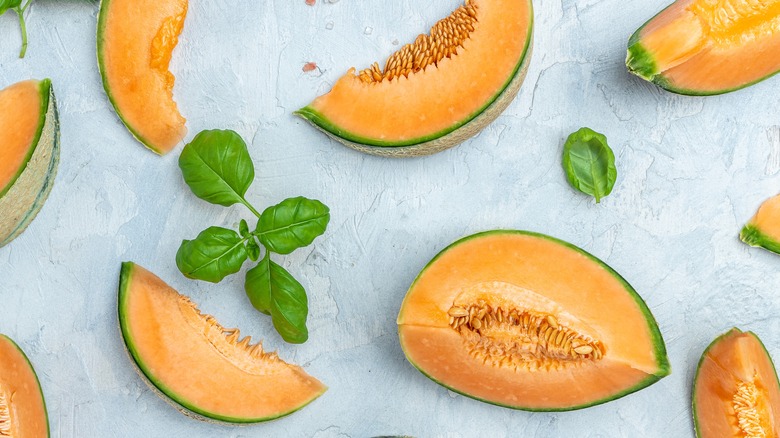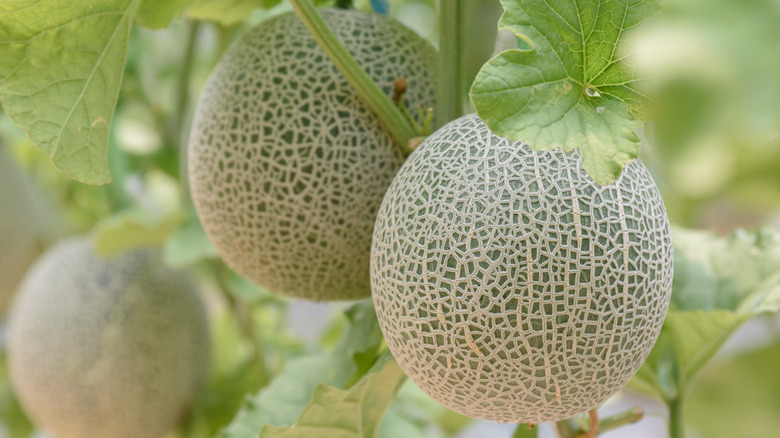Cantaloupe Lasts Longer Than You Might Think
Sweet, floral, and full of juicy goodness, a slice of freshly-cut cantaloupe is hard to resist. While delicious on its own, there are countless ways to incorporate the melon into your summertime meals that go beyond prosciutto wrapped cantaloupe. A fruity gazpacho, pico de gallo, or even roasted melon popsicles will make you rethink the fruit forever. With all these fresh recipes at your fingertips, the only thing you need to worry about is the best before date on your cantaloupe — but its shelf life might just surprise you.
Contrary to popular belief, looking for cream-colored rinds, sweet aromas, or checking for the absence of a stem (via Delishably), aren't always helpful when trying to pick a ripe cantaloupe. Instead, Bon Appétit advises choosing melons that are heavy for their size and have thick, well-raised webbing on the exterior. With a magnificent melon in tow, it can be tempting to devour it in an instant, but if you're curious about how long the fruit will keep, there are a few things to consider.
New varieties, new shelf life
For optimal freshness and quality, cantaloupe, like many other fruits, is best consumed sooner rather than later. Regardless of how you store your melon, the first thing you should always do is thoroughly wash it to remove any harmful bacteria or residue, which can decrease the risk of foodborne illness (via NPR).
A cut cantaloupe, according to MasterClass, will keep for about 3 days in the fridge, or longer if you keep the seeds. If you don't slice into your melon right away, you might be able to extend your melon's shelf life. Does It Go Bad? reports that a whole, ripe cantaloupe can keep for about a week at room temperature, and storing it in the fridge can add up to 10 days on its best before date — but that's not all you should know.
The California Cantaloupe Advisory Board recently reported that scientists have been developing new varieties of cantaloupe using traditional cross-pollination methods to create sweeter, firmer, and longer lasting melons. That means that new cultivars can stay fresher for longer and can even help in the fight against food waste. However, nothing is made to last forever. Should you notice any bruises, mold, slimy appearance, or off smells, it could be time to toss your cantaloupe.

